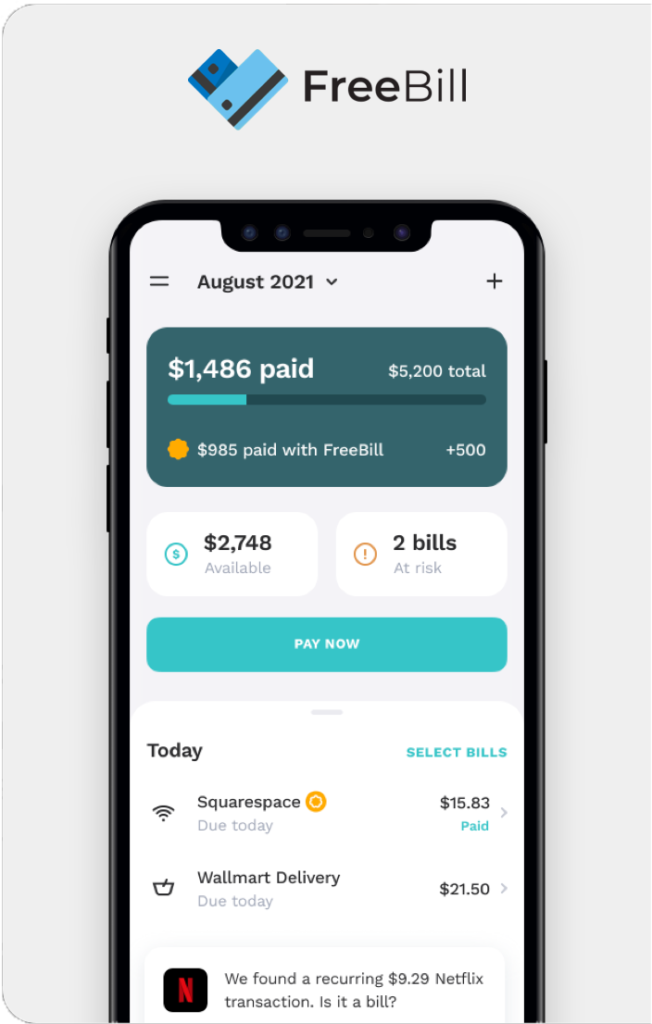
Finding the Best Secured Credit Card for College Freshmen
October 24th 2021
College freshmen have a lot to deal with. They are making their way into the real world, and they need secured credit cards that will help them get settled. There are many secured credit card options out there, but not all of them are created equally. This blog post is going to go in-depth about secured cards for college students so you can find the best one for your needs!
What are secured credit cards?
Secured credit cards are secured by a cash deposit. This means that you can put money into an account, and then access the funds on your card to make purchases or withdraw cash from ATMs. You will need to supply this deposited amount when applying for the secured credit card, but it’s refundable if you close your account within one year of opening it.
What secured credit cards are good for college students?
There is no one best-secured card out there – you will need to find the right secured credit card for your needs! However, we can help you get started by telling you what secured cards work well with college students:
– Secured Mastercards and Visa’s are usually accepted at more places than secured American Express cards are.
– If you plan on traveling, make sure that your secured credit card issuer does not charge foreign transaction fees!
– Always choose a secured card with a low or no annual fee – there’s no need to pay for something if it doesn’t benefit you.
How can college students apply for secured credit cards?
Many secured card companies allow college students to open secured accounts, but you will need a co-signer. In most cases, the parent or guardian of a college freshman can be their co-signer – as long as they have good credit and are willing!
In addition to those requirements:
– You must be at least 18 years old – secured credit cards cannot be opened by minors.
– Many secured card companies require that you have a bank account in order to open one, so make sure that you can meet this requirement before applying!
If your parent or guardian is willing to co-sign for you and they are an authorized user on your account, you should be all set to apply for secured credit cards today!
How can college students build good secured credit?
Usually secured card issuers will allow you to make purchases with your secured line of credit. However, the majority of payment history comes from paying off these charges. If you are making regular payments in a timely manner, you are building good secured credit. To build the best-secured credit possible:
– Always make on-time payments – do not skip or be late with them!
– You can also ask your card issuer to report your account to all three of the major reporting agencies – this will help increase your score even more.
What is a credit line?
A credit line is the amount of money that secured card issuers will let you spend on your secured card. They are usually equal to whatever amount was deposited into your account during application – but they can vary depending on the issuer and what their policies are!
What should college students do after building good secured credit?
Once you have built up secured credit, you can consider applying for unsecured cards! Unsecured secured card issuers will let college students build up good-unsecured credit while enjoying the perks of a secured line and not paying an annual fee. You will need to pay off your balance in full every month like with secured cards – but you won’t have to worry about secured credit building with your payments.
What is a credit history?
Credit history is a record of how well you have managed your secured and unsecured lines of credit. If you make on-time payments, use less than the full amount of the line (known as “utilization”), and avoid late fees or other penalties like over-limit charges – this information will be recorded in your file!
What is a credit limit?
A credit limit is the maximum amount of money you can spend on your secured line – and it’s also known as a “credit card limit”. This number may be different than the credit line that was given to you since secured lines often have an initial deposit or minimum required purchase amount.
When should college students reapply for secured cards?
If you want to increase your secured credit limit:
– You can reapply for a secured card with the same issuer and ask them to raise it.
– If possible, try using another secured card as collateral instead of just reapplying – this way two companies will be reporting on your good activity!
Where should college students go if they need secured credit cards?
There are a ton of secured card options out there – but you will want to choose one that is right for your needs. If you have been denied from multiple traditional unsecured lines, secured cards may be the perfect option for college students!
How can secured card issuers help college students?
Many secured card issuers have a college financing program that can assist you in getting secured cards for students. If you are having trouble building good credit or need to build your secured credit history, this is the perfect solution!
A Secured Credit Card is a Great Place to Start for College Freshmen
As a college freshman, you are looking into ways to pay for all of your expenses. We’re going to cover some options that are perfect for you!
A secured credit card is the first step in building good secured credit history so don’t be shy about it – they can help you build up an awesome score while having fun with secured credit!
There are a lot of secured card options out there and it’s important to pick one that is right for you – if you have been denied from multiple unsecured cards, this may be the solution.
Secured credit lines range anywhere between $100-$500 depending on your deposit amount or minimum purchase required by your issuer. Once you’ve built secured credit, you can consider applying for unsecured cards!
Unsecured secured card issuers will let college students build up good-unsecured credit while enjoying the perks of a secured line and not paying an annual fee. You will need to pay off your balance in full every month like with secured cards – but you won’t have to worry about secured credit building with your payments.
Your secured card issuer may also offer a college financing program that can assist you in getting secured cards! If you are having trouble building good credit or need help, this is the perfect solution – and it’s great for students who want their own line of credit without any risk.
The total number of secured card issuers offering these financing programs to college students is on the rise, so check with your issuer!
Traditional unsecured lines of credit can often be difficult for college freshmen and other young adults just starting out. If you’re having trouble building good-unsecured credit history: secured cards may not be a bad place to start!
Make sure to choose secured cards with low fees and avoid secured lines that require monthly payments – you will want your line of credit to be free! Also, make sure not to max out your secured card since it could do significant damage to building good unsecured credit.
Finally, remember that secured lines are just like normal unsecured lines in many ways – so it’s a great place to start!
What You Will Need to know
What are the three major credit bureaus?
There are three major credit bureaus that keep track of your secured and unsecured lines. You can check this information at any time to see what you have access to – it’s a good idea!
Experian, TransUnion, Equifax
What is the difference between secured cards vs traditional lines?
Secured cards are secured with funds or an account that you provide to your secured card issuer. Unsecured lines are secured by other factors like credit history, income and more.
What is the difference between unsecured cards vs secured?
Unsecured cards require no deposit – a secured line requires a minimum amount of money before approval.
Where can secured cards be used?
Secured lines are accepted at most places where you can use normal credit – secured cardholders have the same purchasing power as unsecured ones.
A secured credit line is a great place to start for college freshmen! College students will love secured cards that offer college financing programs, low fees and more. You don’t have to be a secured cardholder for life – secured cards are fantastic when you’re starting out. With secured lines, college freshmen will love the perks of student financing programs and low fees while building good-unsecured credit history!
What is a Credit Score?
A credit score is a number that represents what risk you pose as an unsecured borrower. A secured line of credit will not affect your credit score since it’s secured with funds or an account, so don’t worry!
What are the three major card issuers?
There are many different secured card issuer options for college freshmen and others starting out. Three major secured card issuers are Capital One, Discover, and American Express.
What is a refundable Security Deposit?
A refundable security deposit is a secured line of credit that requires collateral. With this, you must provide the issuer with something of value to secure your secured credit card – different from an unsecured card which does not require collateral!
What are common secured card fees?
Common secured card fees include annual fees and late payment fees. You will want to avoid secured cards that charge high fees since the line of credit is secured with your deposit!
What are Prepaid and Debit Cards?
Prepaid and debit cards typically do not report to credit bureaus, so secured lines of credit are a better option for college students trying to build good-unsecured credit history.
What are unsecured credit cards?
An unsecured credit card is secured by nothing, they require no deposit. This means that college freshmen will love the freedom of an open line with a secured or traditional line – it’s your choice!
Lastly,
If you have any questions about a secured credit card, getting your first credit line, how to raise your credit limit, the best credit score, paying your first credit card bill, the minimum credit score required to wave an annual fee, what makes a positive credit history, how to receive more credit education, credit unions and why you should join one, unlimited cashback match, your mobile banking app account security, or how to rebuild credit after graduation, let us know.
What is the average credit limit on a secured credit card?
A secured line of credit typically offers a $500 to $1500 limit with an initial deposit.
Do I need a high credit score to get a secured credit card?
No, secured credit cards are great for college freshmen with good-unsecured history who need to build credit!
How long does it take to get a secured credit card?
Typically, you will receive your secured line of credit within one week. It’s important that the application is completed accurately and completely in order to secure approval.
Can I have a credit line from more than one bank?
Yes, college students can have secured lines from different banks – the more options you have for credit is better!
What is the maximum credit limit I can have on a credit line?
You can have a secured line of credit as high as you want – there is no limit!
Who offers a free credit scorecard?
A secured card from Discover will provide you with a free credit scorecard. This is great for college freshmen to keep track of their progress and build good-unsecured history!
Do the major credit bureaus require a security deposit to access my credit score?
No, secured lines of credit do not require a deposit to access your score!
Will my student loans affect my credit score?
The major credit bureaus do not take student loans into account when determining your secured line of credit score.
Does the navy federal credit union require a security deposit?
No, secured cards do not require a deposit to access your score!
Final Thoughts
The best-secured credit cards don’t exist.
If you have cash but prefer to pay with a card, buy a prepaid card with all the cash.
Leaving all the cash in your bank account is a great way to avoid spending it.
A minimum refundable security deposit can be like a savings account.
Your credit scores will have an impact on your life for the rest of your life; be careful with them.
If you have ruined your credit scores your security deposit will always be higher.
If you have high credit scores your security deposit will be lower.



